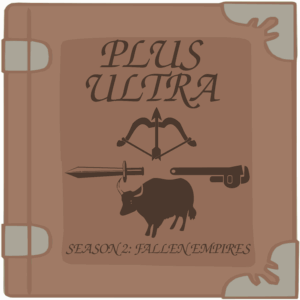Podcast: Play in new window | Download
 Ellie GMs for Beth, Crash, Io, & Jen.
Ellie GMs for Beth, Crash, Io, & Jen.
This episode: We meet Hugh, Steinunn, and Temüülen as they investigate ancient ruins for pay while the world’s magic changes.
Continue reading “Plus Ultra S2 Ep 01: My World’s On Fire, How About Yours: Part 2 (Cypher System)”
